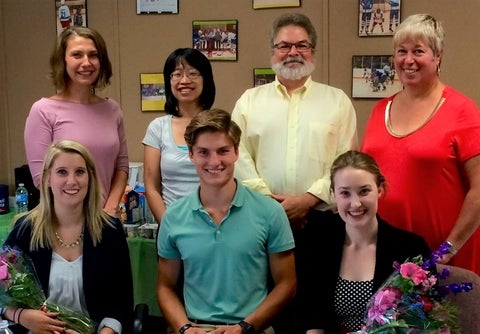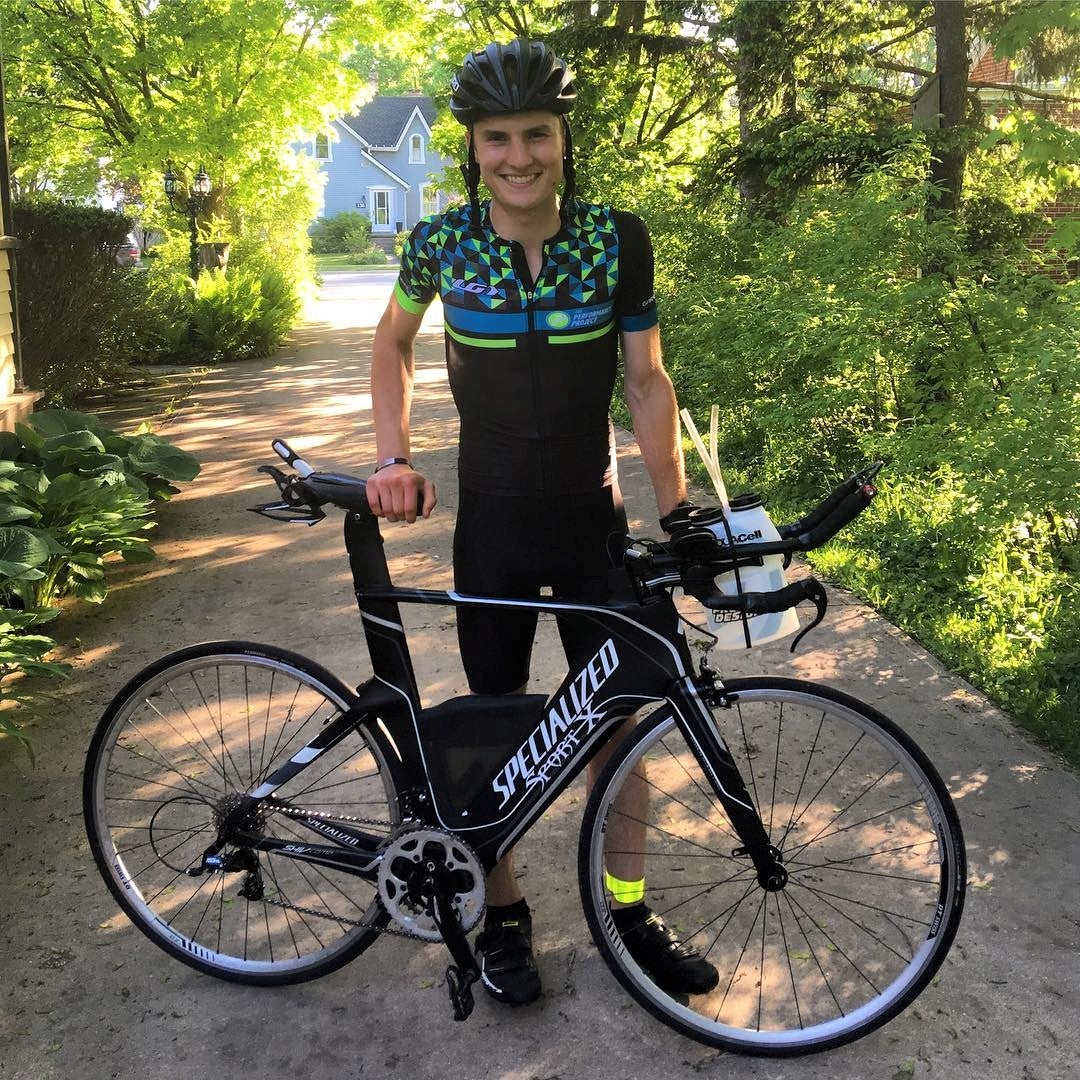
Pharmacy student conducts pharmacy practice research through Gateway Centre of Excellence in Rural Health

Joe with Prof. Feng Chang and a group from Gateway. Back row, left to right: Dr. Agnes Kluz, Dr. Chang, Jim Whaley, and Sheila Scheuhelin. Front Row: Gateway students Katrina Merner, Joe Fonseca, and Alana Roy.
If it wasn’t for an early opportunity to work with professor Feng Chang and the Gateway Centre for Excellence in Rural Health, Joe Fonseca might not have applied to pharmacy school.
“I had an interest in health, sure, but it was those early opportunities that got me interested in pharmacy and pharmacy practice research,” reflects Joe. “Prof. Chang gave me a chance, hiring me after grade twelve as a summer student on the basis of a writing sample I provided.”
In addition to working at Waterloo Pharmacy, Prof. Chang holds the position of Chair of Rural Pharmacy with the Gateway Centre of Excellence in Rural Health, a community-based non-profit organization supporting rural health research located in Goderich, Ontario. Joe, currently an Rx2022 pharmacy student, worked with Prof. Chang for Gateway several summers between his high school graduation and starting pharmacy school.
“It was through this work that I became passionate about pharmacy practice. I was able to identify so many opportunities for quality improvement. While completing my undergrad at Queen’s University, I was able to leverage my research experience from Gateway and to build skills in epidemiology and biostatistics.”
Both Prof. Chang and Gateway grant students leeway in developing and delivering research projects. The first project Joe undertook was based on his experience shadowing a community pharmacist in Seaforth, Joe’s hometown.

Joe arriving home in Seaforth after a long bike ride.
“That pharmacist was one of the only methadone providers in the area. He told me how there are unique barriers in the rural pharmacy setting, and that got me thinking about equity and access to these important services,” says Joe.
Joe searched the literature and was surprised to find that there was no published research on the barriers and facilitators to delivering methadone services in a Canadian pharmacy setting. So, he got to work: Joe developed a research plan and began interviewing rural community pharmacists. He completed the data collection while at Queen’s, analyzed that data and, with Prof. Chang’s support, wrote a manuscript to publish his results.
The results were published in the Journal of Rural Health in an article called Perceived Barriers and Facilitators to Providing Methadone Maintenance Treatment Among Rural Community Pharmacists in Southwestern Ontario.
I have to credit Prof. Chang and Gateway for their flexible approach to mentorship. Working with them, you get out what you put in – if you want to take an idea and run with it, they support you wholeheartedly. As a student, I’ve gained tangible skills and connections and been able to see the product of my work published and making a difference.
The methadone paper was just Joe’s first taste of research. Since then he’s collaborated with other Gateway researchers on numerous rural health projects. Today, he’s working on initiatives with Prof. Nancy Waite and the Ontario Pharmacy Evidence Network.
Gateway’s model of supporting young people with an interest in rural health is designed in part to help encourage future health care providers to return to a rural setting to practice. Originally from Seaforth, Joe sees himself doing just that after completing pharmacy school. He hopes to blend practicing as a pharmacist with conducting pharmacy practice research.
My experiences with Gateway have taught me so much about myself and my interests. It taught me to focus on what skills I have – to leverage those to have an impact and to build new skills so that I bring something to the table when partnering with researchers.
Research can seem like a daunting field, but Joe encourages others to take the risk and get involved if they want to do the kind of work that can help inform health policy.
“Don’t be intimidated by the research process. You have skills you bring, but you’ll also develop transferable skills. You don’t have to have done it before – yes, you may get thrown in the fire and make mistakes, but you’re there to learn and grow. At Gateway, my supervisors have always been very supportive of that.”